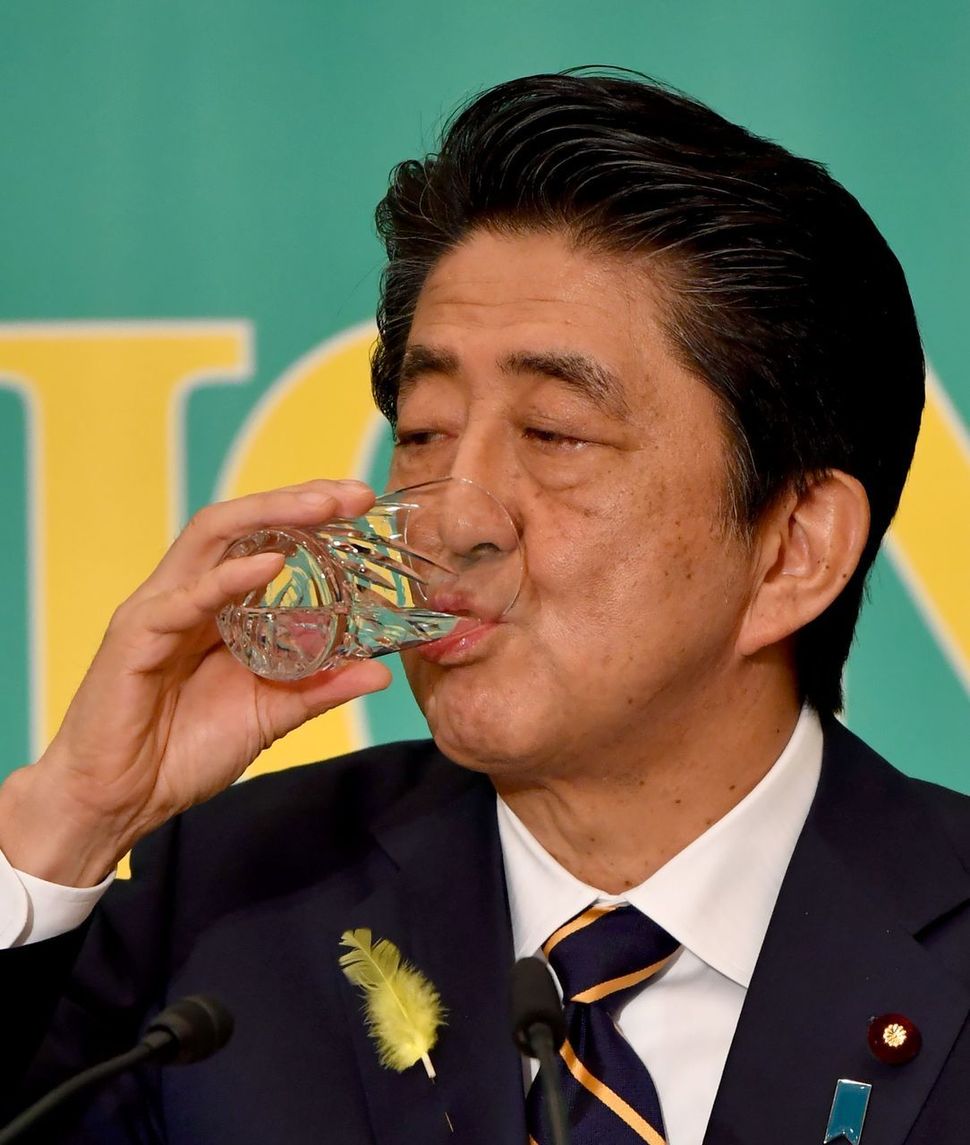 |
|
Japanese Prime Minister Shinzo Abe at a roundtable discussion at the Japan National Press Club on July 3. (AFP/Yonhap News)
|
Experts point to harm measures could inflict on both sides
Even Japanese experts are going public with concerns that the export controls the Japanese government is imposing on materials used by South Korean semiconductor manufacturers might be in violation of World Trade Organization (WTO) agreements. There have also been several editorials in the Japanese press explicitly condemning what are basically retaliatory measures by the administration of Japanese Prime Minister Shinzo Abe. “The basic principle of the WTO agreement is most-favored-nation status, which means that measures that are favorable to one member country must also be applied to all other member countries,” explained Yuga Fukunaga, a professor at Waseda University and an expert on international law, during an interview with the Nihon Keizai Shimbun that was printed on July 3. “Maintaining expedited procedures for exports to other countries while only requiring South Korea to deal with complex procedures could certainly be in violation of most-favored-nation status,” Fukunaga went on to say. “The Japanese government argues that its measures are appropriate because of Article 21 of GATT (General Agreement on Tariffs and Trade), which grants exceptions for security reasons. But Article 21 doesn’t grant a blank check to do anything on the pretext of security,” the professor said. “At the present moment, we’re still in a gray area — it’s unclear whether or not this is a violation of WTO agreements,” Fukunaga conceded. But he also expressed his regret that Japan is “using trade measures to force other countries to change their policies, as the US has done.” The export controls also came under heavy fire from editorials in Japanese newspapers. In a Wednesday editorial titled, “Rescind the retaliation immediately,” the Asahi Shimbun slammed the Japanese government for its ambiguous attitude. “As the chair of the G20 summit in Osaka, Japan took the lead in declaring ‘free, fair, and nondiscriminatory trade.’ But in an announcement two days later, it displayed a willful and cavalier attitude toward multinational agreements,” the newspaper said. The Tokyo Shimbun offered similar criticism in an editorial titled “Unfortunate for both sides” in its Wednesday edition. “The South Korean and Japanese economies are in a mutually dependent relationship and operate according to the principles of free trade. Protest measures go against such principles,” the newspaper said. “This will have the undesired side effect of causing South Korean companies to distance themselves from Japan in the future,” the paper also said. “During our dispute with China over the Senkaku Islands [called the Diaoyu Islands in China], Japan criticized China for imposing export controls on rare earths. Export restrictions that target the other side’s weak points can’t be assumed to be a magic bullet for political or domestic problems.” Wall Street Journal equates Abe’s tactics to those of Trump On July 2, the Wall Street Journal also criticized Japan’s decision to regulate exports of semiconductor materials to South Korea. Despite styling itself as an adherent of free trade, the newspaper said, the Abe administration is employing the trade tactics of US President Donald Trump. The newspaper quoted Yorizumi Watanabe, professor emeritus of trade policy at Keio University, as saying that the export controls would harm not only South Korea but Japan as well, while damaging Japan’s international reputation. Watanabe warned that free trade is like a bicycle —once it stops, it falls over. The newspaper predicted that impeding semiconductor production would have a domino effect on the Apple iPhone, and on Apple’s Japanese part suppliers. Tobey Gonnerman, executive vice president for Fusion Worldwide, an electronic parts supplier, said that the Japanese government’s decision produces no winners. Before jumping into regulations, Gonnerman added, governments ought to think about the potential ramifications. By Cho Ki-weon, Tokyo correspondent, and Cho Kye-wan, staff reporter Please direct comments or questions to [english@hani.co.kr]






